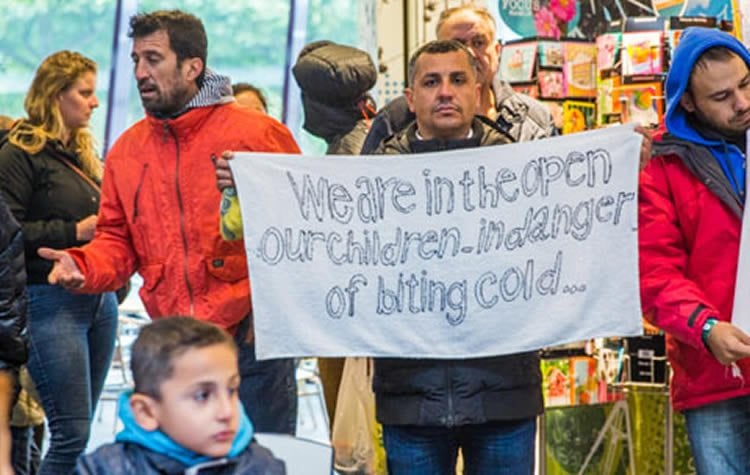We can learn to empathize with strangers. Surprisingly positive experiences with people from another group trigger a learning effect in the brain, which increases empathy. As researchers from Radboud University and colleagues from Switserland reveal, only a handful of positive learning experiences already suffice for a person to become more empathic.
Conflicts between people from different nationalities and cultures often stem from a lack of empathy or compassion for “the stranger”. More empathy for members of other groups could thus encourage peaceful coexistence. A study conducted by the University of Zurich examined whether empathy with strangers can be learned and how positive experiences with others influence empathic brain responses.
Surprising behavior influences learning
A team of psychologists and neuroscientists measured brain activation in participants who had had positive experiences with a member of their own group (in-group member) or another group (out-group member). During the test, the participants expected to receive painful shocks to the backs of their hands. However, they also discovered that a member of their own or another group could pay money to spare them pain. The brain activation while observing pain in a person from one’s own or another group was recorded before and after these experiences.

At the beginning of the study, the stranger’s pain triggered a weaker brain activation in the participant than if a member of his or her own group was affected. However, only a handful of positive experiences with someone from the stranger’s group led to a significant increase in empathic brain responses if pain was inflicted on a different person from the out-group. The stronger the positive experience with the stranger was, the greater was the increase in neuronal empathy.
Societal impact
The effect lasts at least twenty minutes after the experience of helping, says Jan Engelmann from the Donders Institute of Brain Cognition and Behaviour at Radboud University. ‘Beyond that, it is hard to tell and would require additional research. One very reasonable assumption would be that this works similar to positive reinforcement, or Pavlovian learning. That would mean that somewhat repeated exposure to postive experiences is required to avoid extinction. This is something we will look into in future studies.’
He adds: ‘Increasing empathy toward strangers offers a promising way to master the current refugee crisis in a peaceful way. In our research we aimed at finding an efficient intervention to enhance empathy towards outgroup members. We show that very simple, but repeated positive interactions with strangers can induce positive emotions that lead to greater levels of empathy towards them. Our hopes are that our findings will inspire further research that eventually leads to neurobiologically informed interventions that allow people from different cultures to enrich each others’ lives.’
Source: Radboud University
Image Credit: The image is adapted from the Radboud University press release
Original Research: The research will appear in PNAS during the week of December 21 2015.






